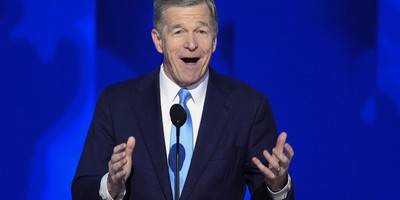Sweeping acts of government power are certain to have unintended consequences. Americans have seen this truth played out in the conduct of recent wars.
But what are the potential unintended consequences of the sweeping move the government is making now to purchase $250 billion worth of shares in American banks?
One possibility: Government holds the banks indefinitely.
The bailout law hastily enacted by a frantic Congress before its members scurried out of Washington to campaign for re-election does not require the government to surrender the assets it buys from the private sector.
Nor does the law plainly say the government can buy an ownership interest in banks. What it does say is that between now and Dec. 31, 2009, the treasury secretary is authorized to buy "troubled assets." What are those? The law provides two definitions.
Definition "A" is: "residential or commercial mortgages and any securities, obligations, or other instruments that are based on or related to such mortgages." This is probably what many Americans understood to be the target of the bailout.
But definition "B" is a wildcard. It includes "any other financial instrument that the secretary, after consultation with the chairman of the Board of Governors of the Federal Reserve System, determines the purchase of which is necessary to promote financial market stability ... ."
This is the language used to justify government buying stakes even in financially sound banks.
The language controlling what the government must do with these assets once it owns them gives great "flexibility" to the treasury secretary. It says: "The secretary is authorized to take such actions as the secretary deems necessary to carry out the authorities in this act, including, without limitation, the following: ... In order to provide the secretary with the flexibility to manage troubled assets in a manner designed to minimize cost to the taxpayers, establishing vehicles that are authorized, subject to supervision by the secretary, to purchase, hold, and sell troubled assets and issue obligations."
Recommended
In "minimizing cost to the taxpayer," how long can the secretary "hold" these assets? The law sets no limit.
"We can hold them for as long as we want," Treasury spokesperson Jennifer Zuccarelli told Matt Cover of CNSNews.com earlier this month.
To be sure, permanent government ownership in the banks is not Secretary Paulson's intended consequence. But he won't be treasury secretary next year.
The plan drawn up by Treasury clearly envisions the government selling the stock back to the banks. It also hedges against elected officials using government ownership of the banks for their own political advantage by giving oversight over these stocks to the federal bank-regulating agencies: the Office of Thrift Supervision; the Office of the Comptroller of the Currency; the Federal Reserve; and the Federal Deposit Insurance Corp.
According to the details published by Treasury last week, a bank (a "qualified financial institution" or QFI in the lingo of the plan) can seek to buy its shares back from the government in the first three years of the plan if it can raise 25 percent of the value of the shares by selling stock elsewhere. After three years, a bank can opt to buy back its shares at any time. But all stock buy-back decisions, before and after three years, "shall be subject to the approval of the QFI's primary federal bank regulator."
Giving federal regulators the power to approve or disapprove a bank's decision to buy back its own stock is not unique to the bailout deal. In all circumstances, a bank must get approval from federal bank regulators before it can make a significant expenditure that would reduce its capital.
The regulatory agencies will make their decisions based on judgment calls about the financial safety and soundness of particular banks.
But the bottom line is that banks are not guaranteed they can buy back their stock.
The Treasury plan, meanwhile, creates at least two incentives for elected officials -- and their appointees -- to seek to maintain government ownership in the banks. First, the banks the government takes ownership in must follow government rules controlling compensation for top executives. Secondly, the banks must pay the government a 5 percent annual dividend for the first five years and a 9 percent dividend "thereafter."
That means that the $250 billion in bank shares Secretary Paulson plans to buy now will initially pay the Treasury $12.5 billion in annual dividends before ballooning to $22.5 billion in late 2013.
Three years from now, the season will be ripe for banks to begin trying to buy back stock. The political season will also be ripe. Early presidential primaries, and a new congressional election year, will loom. The resilient American economy may be on an upswing then -- no matter what politicians do to it the meantime.
And some incumbents may be tempted to legislate and campaign, saying: We saved the economy by bringing to heel the greedy bankers who caused the financial crisis of 2008. So, we are going to keep the government's shares in the banks and use the $22.5 billion in annual dividends to cut taxes for everybody who makes less money than Joe the Plumber.

























Join the conversation as a VIP Member